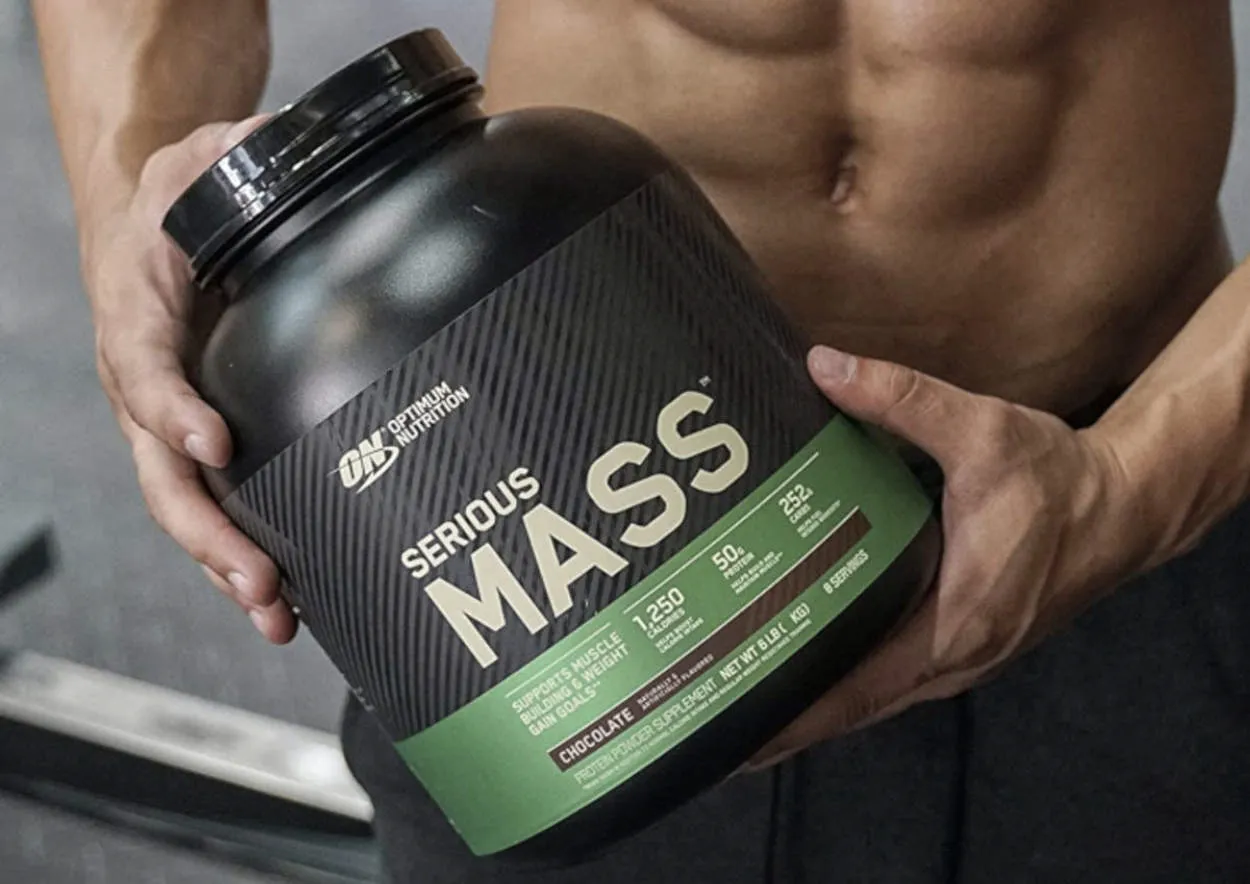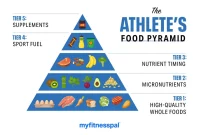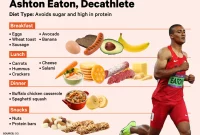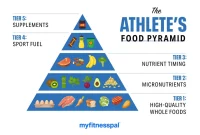Are you looking to enhance your athletic performance and build muscle? Look no further than the power of protein. In this article, we delve into the importance of protein for athletes and how it can help in maximizing muscle growth and overall performance.
The Role of Protein in Muscle Development
Protein power plays a crucial role in building muscle for athletic performance. When it comes to developing and maintaining muscle mass, protein is an essential nutrient that individuals involved in sports and exercise should pay close attention to.
Protein serves as the building block for muscle tissue. During physical activity, our muscles undergo stress and experience tiny tears. To repair and rebuild these muscles, our bodies rely on protein. Consuming adequate protein allows the body to repair and rebuild these muscles, leading to enhanced muscle growth and strength.
Furthermore, protein provides the necessary amino acids that are vital for muscle development. Amino acids are the fundamental units of protein and are responsible for numerous functions in our bodies, including muscle repair, growth, and maintenance. By consuming protein-rich foods, athletes can ensure they have an adequate supply of amino acids to support muscle development.
In addition to muscle repair and growth, protein also aids in muscle recovery. Engaging in intense workouts or sports activities often leads to muscle fatigue and soreness. Protein helps to speed up the recovery process by promoting muscle tissue repair and reducing inflammation.
A proper protein intake is important in maximizing muscle development and athletic performance. The recommended daily protein intake for athletes and active individuals varies, but generally falls between 1.2 to 2.0 grams of protein per kilogram of body weight. This can be achieved through a combination of animal and plant-based protein sources such as lean meats, poultry, fish, eggs, dairy, legumes, nuts, and seeds.
Ultimately, incorporating an adequate amount of protein into one’s diet, along with regular exercise, is crucial for building and maintaining muscle mass. Whether you are an athlete or simply someone looking to improve their physique, considering the role of protein in muscle development is essential for overall fitness and performance.
Plant vs Animal Proteins for Athletes
When it comes to athletic performance, protein is essential for building and repairing muscle. Athletes often turn to both plant and animal sources to meet their protein needs, but the question remains: which is better?
Animal proteins, such as those found in meat, poultry, fish, and dairy products, are considered complete proteins. They contain all the essential amino acids that the body needs. They are also easily digestible and have high biological value, which means they provide a good balance of amino acids for muscle growth and repair.
On the other hand, plant proteins, found in sources like beans, lentils, tofu, and quinoa, are often regarded as incomplete proteins as they lack one or more essential amino acids. However, this can be easily overcome by combining different plant protein sources to create a complete amino acid profile.
There are advantages to choosing plant proteins for athletes as well. They tend to be lower in saturated fat and cholesterol compared to animal proteins. Additionally, plant-based proteins provide phytochemicals, fiber, and antioxidants that are beneficial for overall health and may aid in muscle recovery.
The choice between plant and animal proteins ultimately depends on the preferences and dietary needs of the individual athlete. Some athletes may thrive on animal protein, while others prefer the benefits of plant-based options. Regardless, it is important for athletes to consume enough protein and consider their overall nutrient intake to support optimal athletic performance.
Timing Protein Intake for Optimal Results
When it comes to building muscle for athletic performance, protein plays a crucial role. Not only does it provide the essential building blocks for muscle repair and growth, but it also fuels your workouts and aids in recovery. However, the timing of your protein intake can make a significant difference in maximizing your results.
1. Pre-Workout Protein:
Consuming protein before your workout can help kick-start the muscle-building process. Aim for a small meal or snack containing high-quality protein, such as lean chicken, fish, or a protein shake, around 30 minutes to an hour before exercise. This will provide your muscles with the necessary amino acids, ensuring they have enough fuel during your workout.
2. Post-Workout Protein:
After your workout, your muscles are primed to absorb nutrients, including protein. Consuming a protein-rich meal or shake within 30 minutes to an hour after exercise can enhance muscle recovery and growth. Whey protein, in particular, is rapidly digested and highly effective in promoting muscle protein synthesis.
3. Bedtime Protein:
Consuming protein before bed can help support muscle growth and prevent muscle breakdown during the night. Casein protein is a slow-digesting protein that provides a sustained release of amino acids, making it an ideal choice. Consider having a cup of Greek yogurt or a casein protein shake before hitting the bed.
Remember, while timing protein intake is important, it is equally crucial to focus on overall protein consumption throughout the day. Aim for a balanced diet with protein-rich foods in each meal, including lean meats, fish, eggs, dairy, legumes, and plant-based protein sources.
By strategically timing your protein intake and ensuring adequate daily consumption, you can optimize muscle growth and enhance athletic performance. Always consult with a nutritionist or dietitian for personalized recommendations based on your specific needs and goals.
Protein-Rich Recipes for Athletes
Are you an athlete looking to enhance your performance and build muscle? One crucial element of your diet should be protein. Protein is essential for muscle repair and growth, making it a key component of any athlete’s nutrition plan. Here are some protein-rich recipes to support your athletic goals:
1. Grilled Chicken Salad
Grilled chicken is not only delicious but also packed with protein. Combine grilled chicken breast with a variety of fresh vegetables like spinach, cherry tomatoes, and cucumbers for a nutrient-rich salad. Drizzle with a light dressing for added flavor.
2. Greek Yogurt Parfait
Greek yogurt is a protein powerhouse, containing twice the amount of protein compared to regular yogurt. Layer Greek yogurt with fresh berries, granola, and a drizzle of honey for a satisfying and protein-packed parfait.
3. Quinoa and Black Bean Bowl
Quinoa is not only a great source of protein but also rich in essential amino acids. Combine cooked quinoa with black beans, grilled vegetables, and a sprinkle of feta cheese for a hearty and nutritious post-workout meal.
4. Protein Smoothie
A protein smoothie is a quick and easy way to boost your protein intake. Blend together a scoop of protein powder, your choice of fruits, and a liquid of your choice (such as almond milk or coconut water) for a refreshing and protein-rich beverage.
5. Baked Salmon with Quinoa
Salmon is an excellent source of high-quality protein and omega-3 fatty acids. Bake a salmon fillet and serve it alongside cooked quinoa and steamed vegetables for a well-rounded and protein-packed meal.
Incorporating these protein-rich recipes into your diet as an athlete will help support muscle growth, repair, and improve your overall athletic performance. Remember to consult with a nutritionist or dietitian to determine the specific protein requirements for your body and activity level. Fuel your body with the right nutrients to reach your peak performance!
Debunking Protein Myths in Sports Nutrition
When it comes to athletic performance, protein plays a crucial role in building and repairing muscles. However, there are several misconceptions surrounding protein intake in sports nutrition. Let’s debunk some of the common myths:
Myth 1: More Protein Equals More Muscle
Contrary to popular belief, consuming excessive amounts of protein does not automatically result in more muscle mass. The human body has a limit on how much protein it can effectively utilize for muscle synthesis, known as the muscle protein synthesis (MPS) ceiling. Consuming protein beyond this point will not provide added benefits and may even lead to increased fat storage.
Myth 2: Protein Must Be Consumed Immediately After a Workout
While there is a window of opportunity post-workout where protein synthesis is heightened, consuming protein immediately is not mandatory. The body has the ability to store and utilize amino acids for muscle repair throughout the day. It is more important to ensure an adequate daily protein intake rather than focusing solely on the timing of consumption.
Myth 3: Animal Protein Is Superior to Plant Protein
Contrary to the belief that animal protein is superior, plant protein can be just as effective in supporting muscle growth and recovery. Plant-based protein sources such as beans, lentils, quinoa, and tofu offer a range of essential amino acids necessary for muscle synthesis. Additionally, plant protein is often lower in saturated fat and higher in fiber, making it a healthier option for overall nutrition.
Myth 4: Protein Supplements Are Always Necessary
While protein supplements like whey protein can be convenient and effective, they are not essential for every athlete. Meeting daily protein requirements can easily be achieved through whole food sources. Additionally, whole foods provide a wider array of essential nutrients that are beneficial for overall performance and health.
Myth 5: Excessive Protein Intake Is Harmless
Consuming excessively high amounts of protein can put a strain on the kidneys and liver, especially for individuals with pre-existing renal conditions. It is crucial to maintain a balanced and varied diet, ensuring that protein intake aligns with individual needs and is accompanied by adequate hydration.
In conclusion, while protein is important for athletic performance, it is essential to separate fact from fiction when it comes to protein myths in sports nutrition. Understanding the science behind protein consumption can help athletes optimize their nutrition and maximize their performance.
Conclusion
In conclusion, incorporating protein into an athlete’s diet is crucial for building muscle and enhancing athletic performance. Protein provides the necessary amino acids for muscle repair and growth, allowing athletes to recover faster and perform at their best. It is essential to consume a balanced diet rich in lean protein sources to optimize muscle development and reach peak athletic potential.




